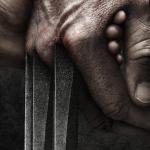
We can’t ignore the 800-ton gorilla in the room.
Kong: Skull Island stomps into theaters today, pounding his chest, tearing apart dinosaurs and (its makers hope) thrilling a new generation of moviegoers. If we’ve learned anything since Kong first appeared 84 years ago, it’s that we just can’t get enough of the big lug.
Kong made his debut in 1933 in the classic King Kong, and the gorilla’s original story has all the flavor of a Greek tragedy: This gigantic primate, an all-powerful monarch in his own world, is yanked from his primeval kingdom and taken to civilized New York as a sideshow. But Kong escapes, grabs the lovely Ann Darrow (Fay Wray) and scales New York’s biggest tower to do battle with a bunch of biplanes. For all his strength, Kong is no match for the modern world. He eventually succumbs and falls, lying dead in Manhattan’s busy streets.
Kong doesn’t follow the same script in every film he appears in. Skull Island, at least from the trailers, looks far more concerned with Kong’s jungle empire than the Empire State Building. But the elemental tensions of the original are still very much in play in almost everything the gigantic gorilla shows up in. Kong doesn’t fight dinosaurs and monsters as much as the modern world. It’s a battle royale pitting nature against technology, a primal past against a progressive future.
But as I think about Kong, I think the ape and his incredibly durable story contain just a whiff of the Christian story, too—not its biblical story, but its history.
Christianity and Kong look pretty alike if you squint: Huge. Powerful. Some look at it and see its majesty, its glory. And as we come to understand the faith, we become a bit like Naomi Watts’ version of Ann Darrow in the 2005 version of King Kong: We see its gentleness. Its love.
Others see a monster.
Not everyone sees an inherently bad monster, mind you—just one that could stand a little civilizing. They a marvel, one whose power and primitive beauty cannot be denied. It was, after all, a force that shaped Western Civilization for 2,000 years, creating and destroying kingdoms in its wake. Some of the world’s greatest achievements in art, philosophy, education and governance were built, at least in part, on the foundation of faith. It would be a shame to forget that legacy, they say. But Christianity doesn’t fit snugly within today’s secular, empirical society. Sure, we can keep it around, but it should be chained. Tamed.
But faith, if it’s a real faith, can’t be domesticated. Anything that has the power to turn someone’s life upside down isn’t something to be trifled with. Faith is unpredictable. Unquenchable. And sometimes, it can be a little terrifying. It’s forever messing with the status quo. It challenges us. And sometimes—let’s not deny history—it can be its own worst enemy. Sometimes it fights the wrong monsters.
Then the guns come out.
“The plain fact is religion must die for mankind to live,” Bill Maher said in his film Religulous. The biplanes of freethought strafe the beast of belief, peppering it with truths and half-truths and, sometimes, outright lies.
This is nothing new. So it has always been. Ancient Rome wanted to destroy Christianity in its crib. Christianity has battled paganism and atheism and flat-out indifferentism pretty much for its entire history. It has struggled against itself too many times to count.
And Christianity sometimes loses those battles. Like Kong, it falls off the building and crashes. Apparently dead.
But then, just like Kong, it gets a sequel. A remake. Just when its adversaries think it’s gone forever, here it comes again, bigger and stronger than ever.
“Christendom has had a series of revolutions and in each one of them Christianity has died,” G.K. Chesterton said in The Everlasting Man. “Christianity has died many times and risen again; for it had a god who knew the way out of the grave.”
Faith will never be a comfortable thing, for either its critics or for the faithful themselves. But nothing worthwhile, nothing worth worshiping, ever is.













